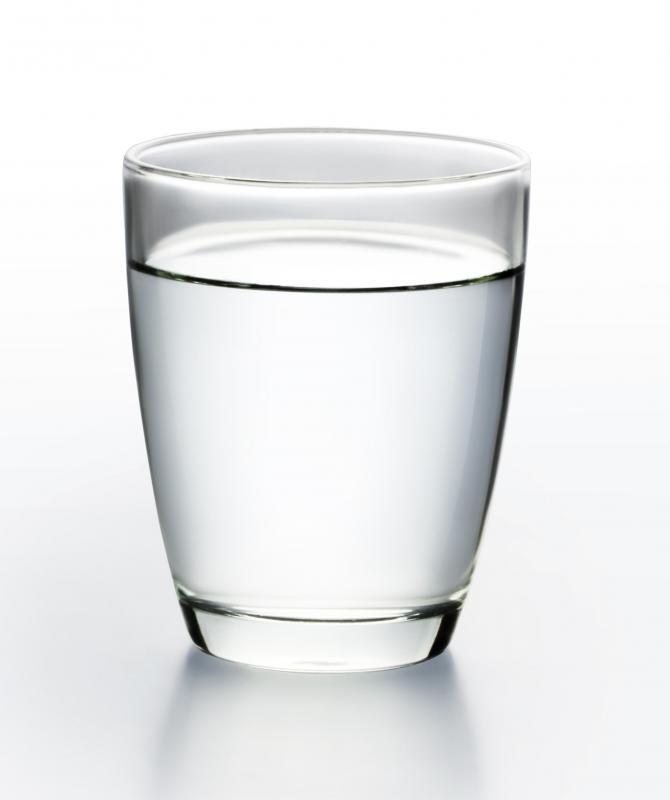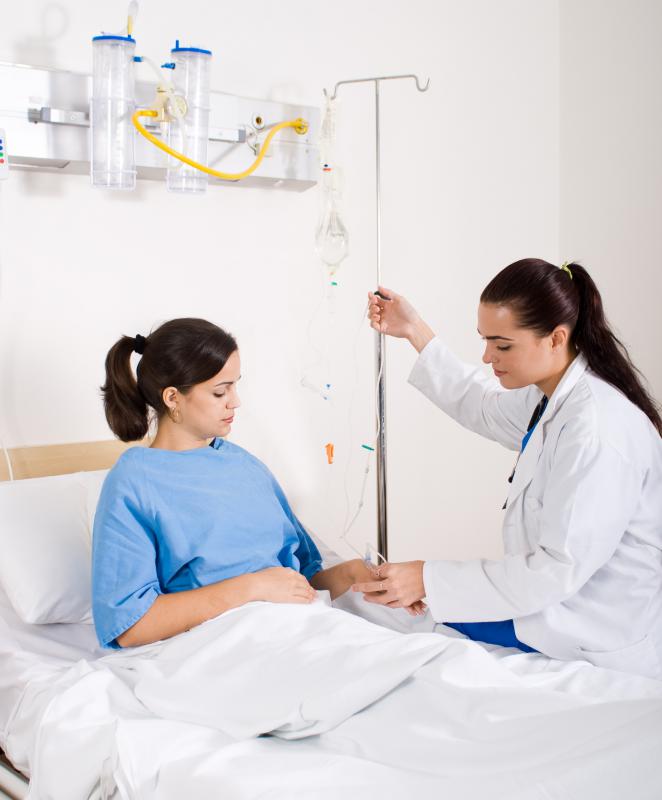At WiseGEEK, we're committed to delivering accurate, trustworthy information. Our expert-authored content is rigorously fact-checked and sourced from credible authorities. Discover how we uphold the highest standards in providing you with reliable knowledge.
What are the Most Common Dehydration Effects?
Dehydration is a serious condition in which the body begins running low on water. Some of the most common dehydration effects include thirst, fatigue, dry skin and dizziness. Other symptoms in cases of dehydration are increased heart rate, shortness of breath and dry-lining in the nose. There are also a few mental dehydration effects, including confusion and inability to focus. The human body is about 75% water, so keeping moisture levels comfortably high is essential for the basic functionality of most anatomical systems.
If dehydration isn’t treated right away, it can escalate and become much more severe. The body may stop producing sweat. Fatigue may become so extreme that any movement seems like a chore, and severe muscle cramps may develop. Headaches are a common symptom, along with nausea and a tingling sensation in the extremities. When these kinds of symptoms are detected, it is usually a sign that the dehydration effects are reaching a dangerous level, and it’s probably time for an individual to seek medical attention.

In situations where a person is unable to treat dehydration for a long period of time, things can reach a deadly level of danger. Individuals may experience muscle spasms, vomiting and dimming vision. Eventually, seizures may develop, followed by unconsciousness. When the situation deteriorates to this degree, immediate emergency medical attention is often required to save someone’s life.

Two of the main things that cause dehydration are hot weather and stomach viruses that lead to vomiting or diarrhea. Avoiding dehydration is generally pretty simple. Individuals have to make sure they take in enough water to make up for the moisture used by their bodies. When a person engages in an activity where the body uses more water than usual, such as exercise, they should generally try to compensate by increasing fluid intake. Some experts recommend using sports drinks when possible to quickly rehydrate in cases of mild dehydration.

Sometimes when children suffer from dehydration effects, it can be difficult to recognize. Very young children aren’t able to tell their parents what's happening to them, so the situation may go untreated. This is especially common when children are suffering with some kind of stomach virus, because dehydration can happen so fast under those conditions. Some dehydration effects that parents can watch for include crying without tears, several hours without a wet diaper, sunken features and listlessness. Extreme caution should generally be observed when dealing with dehydration in children.
AS FEATURED ON:
AS FEATURED ON:


















Discussion Comments
Another thing that you can do to check for dehydration in your child is called a capillary refill test. Press gently on the child’s nail bed so that it turns white. See how long it takes to turn back to regular color. It should takes less than two seconds.
It is very important to watch for signs and symptoms in children for dehydration. As the article stated, they are often not able to tell us or describe to us what is going on in their bodies.
There are a couple of things that you can do at home to check your child for dehydration. One thing is something called a skin turgor test. Have your child hold their hand straight out and gently pinch up their skin on the top of their hand. In a normal, healthy person, the skin should bounce back to its original shape in less than two seconds. If it takes more than two seconds, that is a sign of dehydration.
The skin turgor test can also be done on the abdomen.
I wanted to add a couple of other causes of dehydration.
Diabetes is also a trigger to dehydration. With diabetes, the elevated blood sugar causes sugar to spill into the urine and then water follows. That can lead to serious dehydration. This is why many diabetics have to urinate frequently and are thirsty most of the time.
Burn victims are also very susceptible to becoming dehydrated. The damaged skin cannot prevent the fluid from seeping out the body, therefore they can easily become dehydrated.
Post your comments